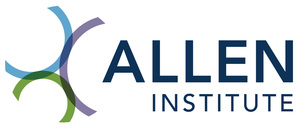The Paul G. Allen Family Foundation Partners With The Alzheimer's Association To Award Grants For Foundational Alzheimer's Research
Funding totaling $500,000 will investigate the role of inflammation on characteristic plaques and tangles of devastating brain disease
SEATTLE, July 14, 2015 /PRNewswire-USNewswire/ -- The Paul G. Allen Family Foundation and the Alzheimer's Association announced today the award of three grants at the frontier of investigating the role of the immune system in Alzheimer's disease. The awards in this understudied but rich area of research are funded at a total of $500,000.
Alzheimer's disease impacts an estimated 5.3 million Americans and is the sixth leading cause of death in the United States. Alzheimer's and other dementias are projected to cost the United States $226 billion in 2015 alone, with that number rising to as high as $1.1 trillion in 2050 according to the Alzheimer's Association Facts and Figures report.
"One of the largest obstacles to finding effective treatments for Alzheimer's is our lack of understanding of the basic biology of the disease, including the role of the immune system and inflammation," says Tom Skalak, Ph.D., Executive Director for Science and Technology for the Paul G. Allen Family Foundation. "These projects closely examine the role that inflammation plays in Alzheimer's disease and carry the potential to reveal new therapies."
"We know the stakes are high for finding life-changing treatments for the Alzheimer's epidemic. A growing body of research suggests that inflammation plays a significant role in Alzheimer's disease, but it appears to both help and harm. Additional research is critical to determine exactly the role inflammation plays and how we might harness it to more effectively treat and prevent Alzheimer's in the future," says Maria Carrillo, Ph.D., Alzheimer's Association Chief Science Officer. "These are three exciting new research projects that will advance our understanding of this important area of research exploration. The Alzheimer's Association is excited about partnering with the Paul G. Allen Family Foundation to seek further understanding of Alzheimer's disease."
Brains of Alzheimer's disease patients show several characteristic traits, including abnormal clusters of protein fragment buildup between neurons, called "plaques," and dead and dying neurons twisted around protein strands, called "tangles." There is often also evidence of an overly active inflammatory response in the brain, though it is unclear whether inflammation is a cause, contributor or secondary phenomenon in Alzheimer's disease.
The projects funded through this partnership will investigate and provide deeper insight into the role of inflammation in the brain on the proteins involved in plaques (beta-amyloid) and tangles (tau). By better understanding the interactions between the immune system and the characteristic pathologies of Alzheimer's, these projects will hopefully open the door to new anti-inflammatory therapies for Alzheimer's disease. About the Award Recipients
- Sally Ann Frautschy, University of California, Los Angeles ($300,000)
Inflammation in the brain has a significant impact on the development of the characteristic tangles of tau protein in brains of Alzheimer's disease patients. This project will use a mouse model to examine the role of inflammation in the proliferation of tau proteins in the brain. This research will, for the first time, uncover the role of the immune inflammatory response on tau development and determine whether processes involved in normal synapse elimination are also implicated in the spread of tau across synapses. - Claudia Balducci, Pharmacological research Institute Mario Negri ($100,000)
A subset of stem cells called mesenchymal stem cells have anti-inflammatory effects on disease in cell culture, but this has yet to be demonstrated in Alzheimer's disease outside of a dish. This research will use a transgenic mouse model to investigate whether material from mesenchymal stem cells could be used as a therapy for Alzheimer's when administered intravenously. Research will focus on the ability of this kind of treatment administration to affect the brain, with specific attention on the role of microglia—the resident immune cell of the brain. This research may lead to the development of potential therapies for Alzheimer's disease. - Jonas J. Neher, Hertie Institute for Clinical Brain Research ($100,000)
It remains unknown whether inflammatory events during normal adulthood can have an effect on the brain's immune response. Additionally, recent data show that infections outside the brain can contribute to the onset of Alzheimer's disease, indicating that inflammatory events throughout life could affect Alzheimer's disease pathology. This research will focus on the suppression of pro-inflammatory responses as well as the induction of anti-inflammatory responses that may be beneficial in blocking Alzheimer's disease.
About The Paul G. Allen Family Foundation
Launched by Microsoft co-founder and philanthropist Paul G. Allen and Jody Lynn Allen in 1988, the Allen family's philanthropy is dedicated to transforming lives and strengthening communities by fostering innovation, creating knowledge and promoting social progress. Since inception, the Foundation has awarded $575 million to more than 1,500 nonprofit groups to support and advance their critical charitable endeavors in the Pacific Northwest and beyond. The Foundation's funding programs nurture the arts, engage children in learning, address the needs of vulnerable populations, advance scientific and technological discoveries, and move new knowledge to global impact that creates economic growth and societal benefit. For more information, go to www.pgafamilyfoundation.org.
About the Alzheimer's Association
The Alzheimer's Association is the leading voluntary health organization in Alzheimer's care, support and research. Our mission is to eliminate Alzheimer's disease through the advancement of research, to provide and enhance care and support for all affected, and to reduce the risk of dementia through the promotion of brain health. Our vision is a world without Alzheimer's. Visit www.alz.org or call 800.272.3900.
Media Contact:
Rob Piercy, Sr. Media Relations Specialist
206.548.8486 | [email protected]
Michael Campea
Associate Director, Public Relations, Alzheimer's Association
312-335 1659, [email protected]
SOURCE Allen Institute
WANT YOUR COMPANY'S NEWS FEATURED ON PRNEWSWIRE.COM?
Newsrooms &
Influencers
Digital Media
Outlets
Journalists
Opted In





Share this article